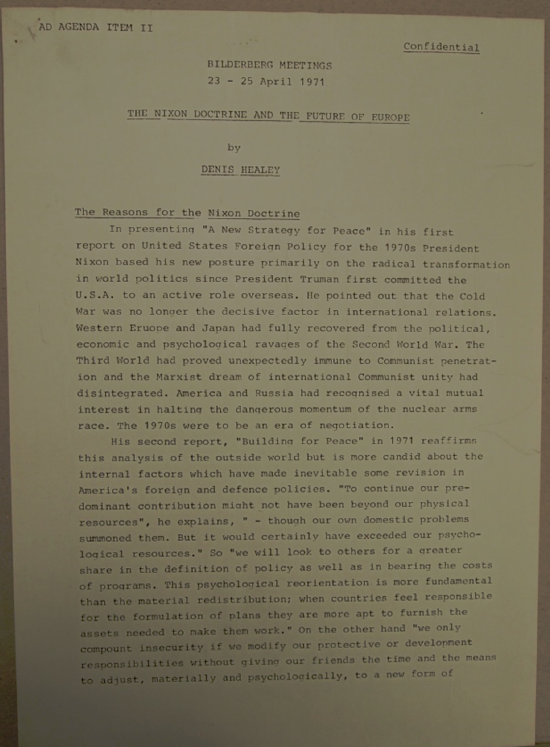In presenting “A New Strategy for Peace” in his first report on United States Foreign Policy for the 1970s President Nixon based his new posture primarily on the radical transformation in world politics since President Truman first committed the U.S.A. to an active role overseas. He pointed out that the Cold War was no longer the decisive factor in international relations. Western Europe and Japan had fully recovered from the political, economic and psychological ravages of the Second World War. The Third World had proved unexpectedly immune to Communist penetration and the Marxist dream of international Communist unity had disintegrated. America and Russia had recognized a vital mutual interest in halting the dangerous momentum of the nuclear arms race. The 1970s were to be an era of negotiation.
His second report, “Building for Peace” in 1971 reaffirms: this analysis of the outside world but is more candid about the internal factors which have made inevitable some revision in America’s foreign and defence policies. “To continue our predominant contribution might not have been beyond our physical resources”, he explains, ” — though our own domestic problems summoned them. But it would certainly have exceeded our psychological resources.” So “we will look to others for a greater share in the definition of policy as well as in bearing the costs of programs. This psychological reorientation is more fundamental than the material redistribution; when countries feel responsible for the formulation of plans they are more apt to furnish the assets needed to make them work. On the other hand “we only compound insecurity if we modify our protective or development responsibilities without g i vino our friends the tine and the means to adjust, materially and psychologically, to a new form of American participation in the world.”

